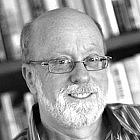 Polacy – gapie Zagłady
Polacy – gapie Zagłady
BARBARA ENGELKING
 Żydzi sprzątają na warszawskiej ulicy w czasie drugiej wojny światowej. Widoczni również policjanci niemieccy. Fot. Ministerstwo Informacji i Dokumentacji rządu RP na emigracji / NAC
Żydzi sprzątają na warszawskiej ulicy w czasie drugiej wojny światowej. Widoczni również policjanci niemieccy. Fot. Ministerstwo Informacji i Dokumentacji rządu RP na emigracji / NAC
Wątły parawan ze Sprawiedliwych wśród Narodów Świata nie jest w stanie zasłonić ogromu podłości i zła, które dotknęło Żydów ze strony ich polskich sąsiadów.
Trzeba poważnie potraktować komentarz prof. Jana Grabowskiego, iż prawda o postawach Polaków wobec Żydów w czasie niemieckiej okupacji nie podlega negocjacjom. Zgadzam się z tym całkowicie i uważam, że wątły parawan ze Sprawiedliwych nie jest w stanie zasłonić ogromu podłości i zła, które dotknęło Żydów ze strony ich polskich sąsiadów.
Warto pamiętać, że mimo niemieckiej opresji, okupacyjnych przepisów i terroru kwestia postaw wobec Żydów pozostawała w obszarze wolnej woli i indywidualnej decyzji pojedynczego Polaka. Można było narażać swoje życie i ratować ich ze świadomością grożących konsekwencji – i ten bohaterski wybór nielicznych stanowi wciąż wygodne alibi dla pozostałych. Można było nie robić nic – co oznaczało po prostu stanie pod krzyżem czy wokół stosu, bycie gapiem i świadkiem cudzej męki, bycie „osobą, która nie jest aktywnie zaangażowana w sytuację, w której ktoś inny potrzebuje pomocy”, jak definiuje „gapia” Petruska Clarkson. Można było także na wiele rozmaitych sposobów wykorzystywać położenie Żydów, szkodzić im, a w końcu – denuncjować i mordować.
Tych, którzy wydawali Żydów
było o wiele więcej niż tych,
którzy im pomagali
Jestem przekonana, że tych, którzy szkodzili i wydawali było o wiele więcej niż tych, którzy współczuli i pomagali. A ci „obojętni” – którzy stali i tylko się gapili – także współtworzyli atmosferę, w której możliwe było poniżanie, upokarzanie, wyzyskiwanie i uśmiercanie Żydów.
Gapie nie są niewinni – zasadne jest bowiem pytanie, czy ich bezczynność i bierność nie stawała się przyzwoleniem dla sprawców zła? Czy ci Polacy, którzy bezwstydnie wydawali lub bez żadnych hamulców i niemal publicznie mordowali Żydów, mogliby tak czynić, gdyby nie milcząca akceptacja i bierne przyzwolenie otaczających ich gapiów? Istotne wydaje się w tym kontekście sformułowanie Zygmunta Baumana:
„Powstrzymanie się od działania jest niewiele mniej brzemienne w skutki niż działanie. Brak oporu ze strony gapiów może w większym stopniu czynić ich odpowiedzialnymi za złe czyny niż obecność ludzi o złych intencjach”.
To mocne słowa i bezkompromisowa diagnoza winy gapia – jego bierności, zaniechania – która wydaje mi się trafna w odniesieniu do Polaków jako gapiów Zagłady. Jak podkreślaliśmy w naszych książkach, rola gapia czy świadka w ostatniej fazie eksterminacji Żydów stała się kluczowa z punktu widzenia osób poszukujących ratunku.
Wychodząc z roli biernego gapia i działając, Polacy brali na siebie odpowiedzialność za życie Żydow – mogli pomagać i ratować, przemilczeć ich ukrytą obecność albo donieść o niej, a także zaprowadzić ich do Niemców lub sami pozbawiać Żydów życia. Wszystko to były wolne wybory jednostki ludzkiej – oczywiście kierowanej strachem, chciwością, litością lub współczuciem – niemniej decyzja pozostawała autonomiczna. Ze strachu można, ale nie trzeba było wydawać. Wydając czy mordując Żydów, gapie stawali się sprawcami zła i jednocześnie niemieckimi kolaborantami, współpracującymi z nimi w dziele Zagłady.
Zakaz pomocy Żydom
nie oznaczał przymusu
ich wydawania
I choć Polacy nie byli wolni od strachu, to byli – w sensie duchowej wolności jednostki ludzkiej – wolni do dokonania każdego wyboru i podjęcia różnych działań. Przecież strach nie musiał skutkować wydawaniem, ze strachu można było po prostu odmówić pomocy. Za odmowę pomocy nie groziły żadne kary. Odmowa była także całkowicie zrozumiała dla Żydów, którzy zdawali sobie doskonale sprawę z tego, że stanowią dla innych śmiertelne zagrożenie. Wspominając odmowę pomocy ze strony znajomej, Stefania Szochur zanotowała: „Nie mam do niej żalu. Każdy ma prawo do strachu, a ja przecież jestem jak wyrok śmierci. Czy mam prawo chcieć ratować swoje życie za cenę innego życia? Czy mam prawo narażać ludzi lub całe rodziny?”. Podobne wątpliwości moralne zapewne powodowały, że wielu Żydów nie szukało w ogóle ratunku, nie chcąc narażać swoich znajomych czy przyjaciół – zwłaszcza przyjaciół.
Odmowa pomocy to jeden z możliwych wyborów, zakaz pomocy – choć pod groźbą kary śmierci – nie oznaczał przecież przymusu wydawania. A jednak wydawano i mordowano, a gapie stawali się bezwzględni i okrutni, jakby ślepi i głusi na cierpienie Drugiego. I choć nie poczuwali się do winy, część z nich poniosła odpowiedzialność karną za swoje czyny. Nie poczuwali się do winy, tym bardziej do winy moralnej – czyli według Karla Jaspersa takiej, której są świadomi ci, którzy popełniają zły czyn – ponieważ nie uważali, że popełnili coś złego. Podobnie uważają tak i dzisiaj niektórzy Polacy: że nie stało się nic złego.
Ja jednak wierzę Jaspersowi, kiedy twierdzi że istnieje ponadto wina metafizyczna, która rozciąga się poza „moralnie uzasadniony obowiązek” i wynika z działań człowieka (lub zaniechania działania), które spowodowało ludzkie cierpienie. W sensie metafizycznym jesteśmy winni zawsze, ponieważ międzyludzka solidarność jest absolutnym fundamentem moralności i nawet jeśli nie ma powiązań między naszym działaniem a cierpieniem Innego – nie zmienia to, jak chce Levinas, bezwarunkowej wzajemnej międzyludzkiej odpowiedzialności.
Fragment tekstu, który ukazał się w miesięczniku „Więź” nr 8-9/2011.
twoje uwagi, linki, wlasne artykuly, lub wiadomosci przeslij do: webmaster@reunion68.com



